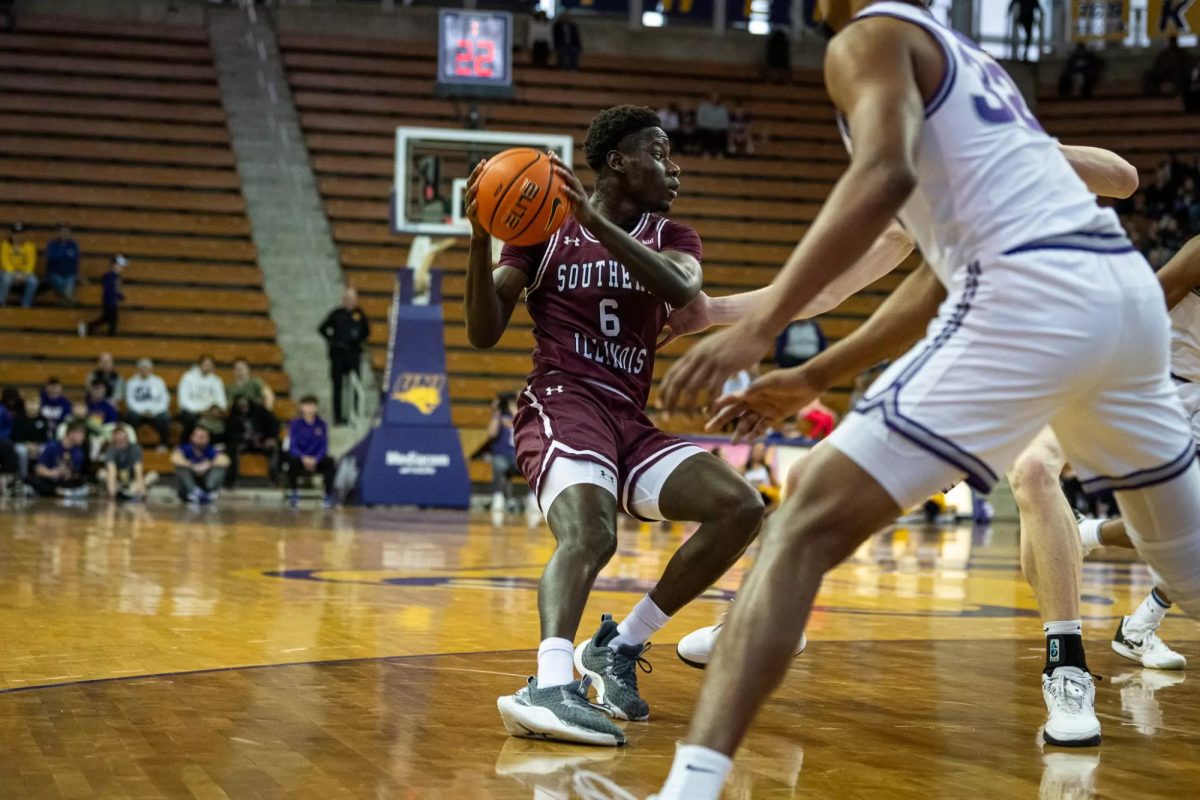Talk traces identity across borders
April 8, 2015
Race has been a touchy subject in America and a presentation hopes to turn the topic into more of an embrace.
The two-staff, one-student panel will discuss immigration, citizenship and identity from Asian and Latino perspectives at 5 p.m. Thursday in the Faner Museum Auditorium.
Two of the panelists are sharing personal examples and research of how immigration affects people.
Advertisement
Nilanjana Bardhan, director of graduate studies, came to the U.S. from India in 1992. With the help of Bin Zhang, a doctoral student in communications from China, she studied how identities transitioned as people moved across borders.
“When we both got here, we struggled with finding where we fit in,” Bardhan said. “Now we live here, we have to understand where we fit in the system. We are not used to seeing ourselves as people of color because where we come from, everyone looks like us.”
Zhang, who came to SIU in 2011, said he and other Asian international students did not understand what was going on in Ferguson last summer. They did not know about America’s history and why a white cop killing a black man would be a major story.
Bardhan said race is a tense issue in America because of the country’s past with slavery, whereas other countries have tension with religion or social class.
“We both struggle with the concept of race in the United States,” Bardhan said. “The way race is understood in the United States is very specific to the history of this country and is not understood in the same way around the world.”
Other countries, less culturally diverse than the U.S., view the concept of race as a lesser issue.
Zhang said it was tough for him to go from being in the majority in China to being a minority here. He said China has a very homogenous population so he had to learn how to act like a minority.
Advertisement*
“People will tell me, ‘You are not so Chinese,’ and I didn’t understand that for a long time,” he said. “I would say, ‘That’s me, I didn’t change much.’ But because I grew up with Chinese concepts, and America is very diverse, it took me a long time to adjust. I’m Asian, so I’m supposed to be quiet, polite or a nerd.”
He said he has felt forced to fit the positive stereotypes for Asian people. He said there is an issue with Americans lumping Asian-Americans, students with Asian heritage born in America, and people born in Asia under one umbrella.
He said the two groups share a lot of the same heritage—being family-oriented and striving for success—but differ in cultural aspects and in identity. He said he identifies more with his ethnicity than citizenship, as compared to an Asian-American student, which could be vice-versa.
Each person has his or her own sense of self, so it is important to maintain that before molding someone into a generic category.
“We can negotiate the nuances between the two and build up a stronger alliance within us, then we can present our differences to the outside,” Zhang said.
Bardhan said this happens because people like to place each other into a social group when they meet.
She hopes talks like this will continue to make race less of a touchy subject in America. She said it is important to keep the dialogue going outside of just one month and break out of molds we put each other in, because eventually the basic ethnicities of white, black, Hispanic and Asian will become mixed.
“If we are always shouting at each other and not really engaging and understanding each other’s viewpoints, then it’s pointless,” she said. “We’re still in our boxes.”
Austin Miller can be reached at [email protected]
Advertisement








